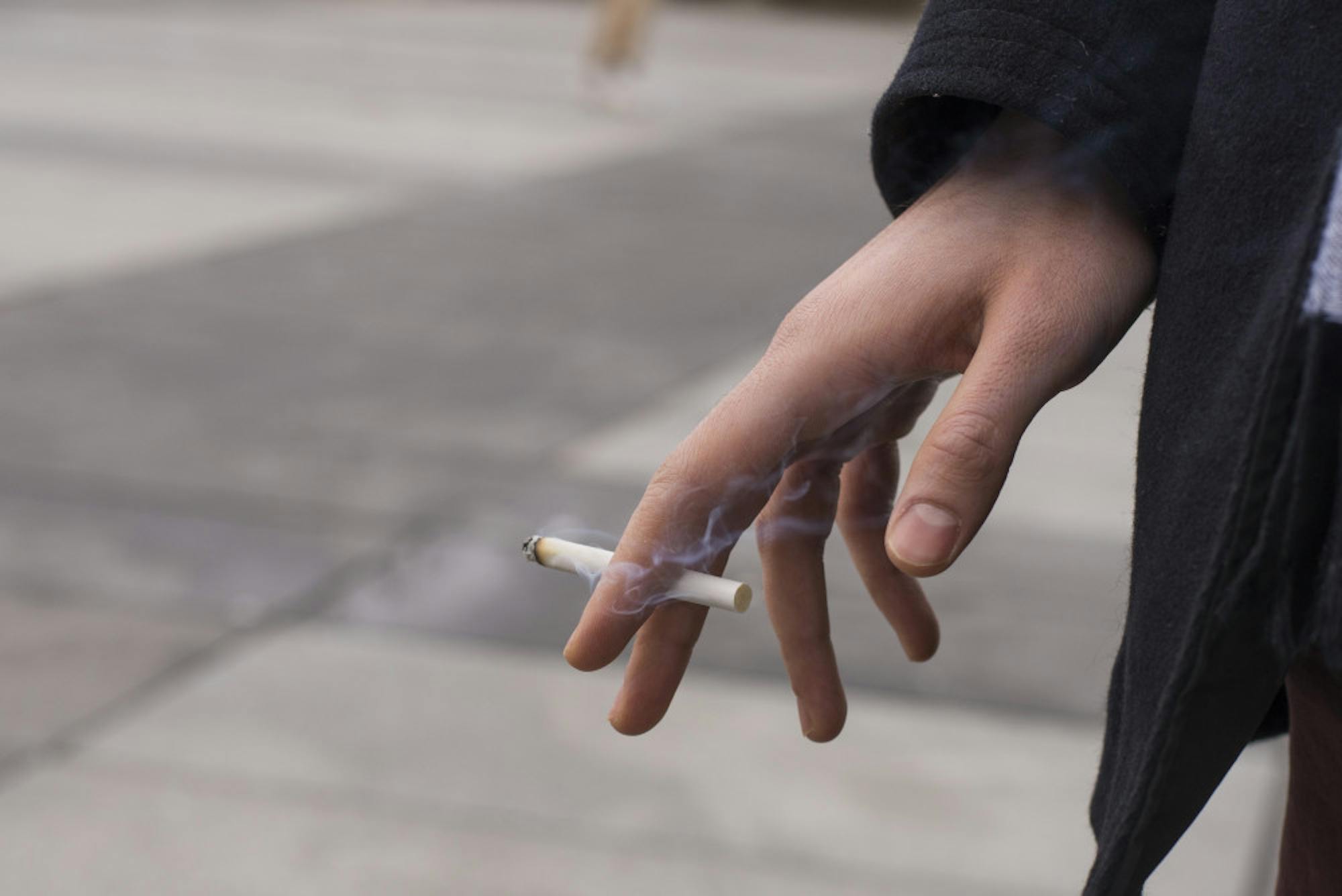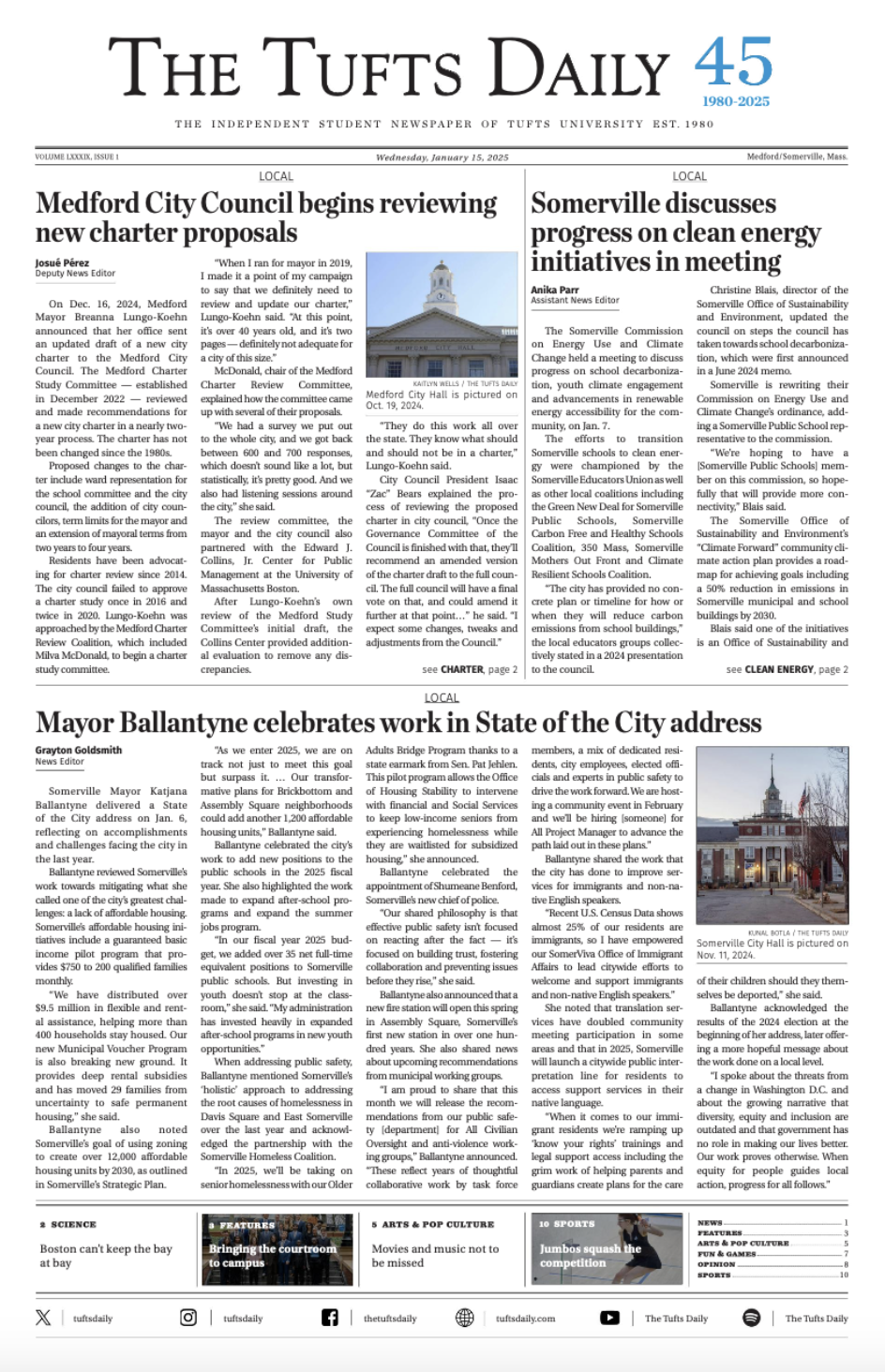Massachusetts Governor Charlie Baker considerably regulated the sale of e-cigarettes and flavored tobacco products by signing into law “An Act Modernizing Tobacco Control” on Nov. 27. This signals the end of his temporary ban on the sale of all e-cigarette and electronic vaping devices, which will now lift on Dec. 11.
According to a press release from the governor’s office, the new law immediately requires that the sale of all flavored vaping products is limited to “licensed smoking bars where they may only be smoked on-site.”
Also effective immediately, the sale of non-flavored vaping products with more than 35 milligrams per milliliter of nicotine will be restricted to adult-only, 21 years-and-older stores; non-flavored vaping products with less than 35 milligrams per milliliter of nicotine may continue to be sold by retailers where they are licensed to be sold, such as convenience stores and elsewhere, according to the release.
Effective June 1, 2020, the law will restrict flavored tobacco products, such as menthol cigarettes and flavored chewing tobacco, to licensed smoking bars for consumption at the bar, similar to flavored vaping products. The law also imposes an additional 75% excise tax on retailers’ purchase of nicotine vaping products, according to the release.
The release included the praise of several prominent state lawmakers and administrators, including Massachusetts Attorney General Maura Healey. Healey praised the legislation for addressing the legal shortcomings exploited by vaping companies to boost sales.
“Vaping companies have taken a page right out of the Big Tobacco playbook — marketing to kids, breaking age verification laws, and minimizing the health risks of these addictive products,” Healey said in the release.
The Public Health Council (PHC) will meet on Dec. 11, the same date as the emergency ban’s expiration, to discuss and propose the regulations necessary to enact the law’s provisions.
A Massachusetts Department of Public Health (DPH) spokesperson declined to comment on what specific regulations the PHC will consider, only telling the Daily in an email that new regulations will be considered at the Dec. 11 meeting.
However, the press release from the governor’s office indicated that the PHC will meet to consider what the DPH commissioner’s authority to regulate a specific product found to pose a “substantial risk to public health” would be. The PHC will also discuss the DPH commissioner's authority regarding guidance on adherence and enforcement of the new law for retailers, manufacturers, and local boards of health and other restrictions.
In addition to the governor's emergency ban on the sale of e-cigarettes, the legislation was also predated by a first-in-the-state regulation in Somerville that restricted the sale of all e-cigarettes and flavored cigarettes to 21-years-and-older, adult-only stores in December 2018, as well as the raising of the legal tobacco purchasing age from 18 to 21 in Massachusetts earlier that year.
Baker initially announced the ban on Sept. 24, declaring a public health emergency after the Centers for Disease Control and Prevention (CDC) linked e-cigarette use with hundreds of hospitalizations due to a mysterious lung disease.
The ban met several challenges in court, eventually requiring the regulation to be refiled through the DPH and lifted no later than Dec. 24, in addition to the Nov. 22 public hearing that was eventually held on the matter, which the Daily reported on previously.
However, the Daily also reported that the CDC has since associated the disease with vitamin E acetate, an additive and thickening agent in vaporizer liquid that resembles THC oil. According to the CDC, the compound is safe when found in dietary supplements or lotions, but it “may interfere with normal lung functioning” when inhaled.
The Cannabis Control Commission (CCC), the Massachusetts cannabis regulatory body established in 2017, swiftly issued a quarantine order banning the sale and distribution of all marijuana vaporizer devices except those for medical use of the marijuana flower itself on Nov. 12, following the CDC’s announcements of its findings regarding vitamin E acetate a few days earlier.
According to a CCC spokesperson, the CCC is not immediately prepared to follow the state’s new legislation with updated regulations of its own.
“The quarantine order remains in effect,” the spokesperson said in an email to the Daily. “The Commission continues to work alongside licensed Independent Testing Laboratories, Medical Marijuana Treatment Centers, and Marijuana Establishments to understand whether regulated marijuana vaping products in Massachusetts contain the additive.”
The spokesperson went on to explain that while the state has developed methods to test for vitamin E acetate which await formal approval, the CCC has already started analyzing samples.
“The Commission has begun testing sample cartridges it has collected from licensees and will continue to provide periodic updates in order to inform the public, including patients and consumers, whether regulated vaping products are free from the additive or other potential contaminants,” the spokesperson told the Daily in an email.
Two thousand two hundred and ninety cases of the lung disease associated with e-cigarettes were reported in the United States as of Nov. 20, according to the CDC. Forty-seven of those resulted in death, three of which occurred in Massachusetts.
Baker ends vape ban with new law restricting vape, tobacco sales

A Tufts student smokes a cigarette on the Tisch Library Patio on Feb 16, 2017.





